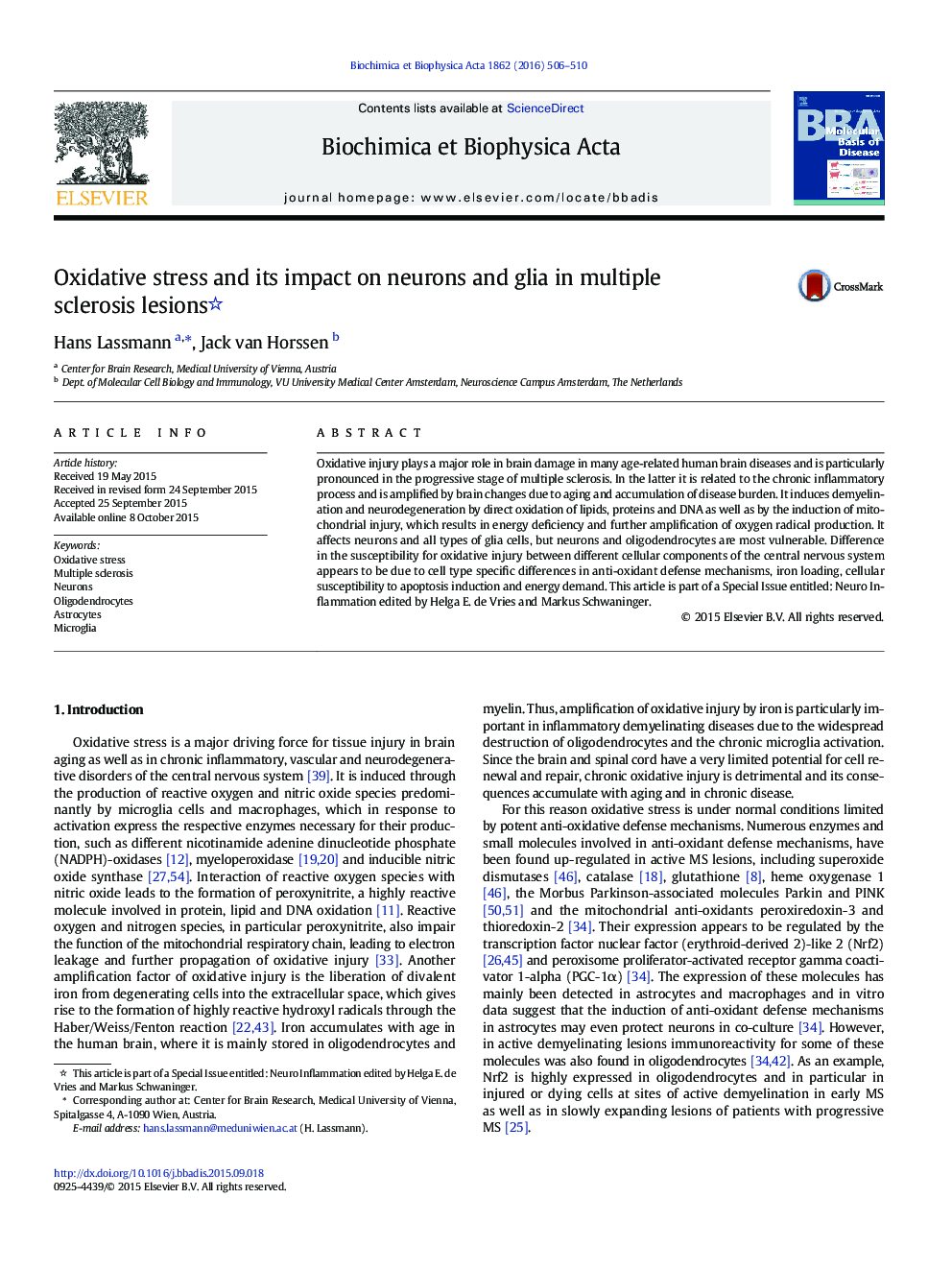| Article ID | Journal | Published Year | Pages | File Type |
|---|---|---|---|---|
| 1904535 | Biochimica et Biophysica Acta (BBA) - Molecular Basis of Disease | 2016 | 5 Pages |
Highligths•Oxidative injury is a major mechanism of demyelination and neurodegeneration in the multiple sclerosis brain.•Oxidative injury is induced by oxidative burst in macrophages and microglia and amplified by mitochondrial damage and iron liberation within lesions.•Neurons and different glia cells respond in a different way to oxidative stress•The patterns and extent of oxidative damage seen in the MS brain are currently not reflected in animals models of inflammatory demyelination
Oxidative injury plays a major role in brain damage in many age-related human brain diseases and is particularly pronounced in the progressive stage of multiple sclerosis. In the latter it is related to the chronic inflammatory process and is amplified by brain changes due to aging and accumulation of disease burden. It induces demyelination and neurodegeneration by direct oxidation of lipids, proteins and DNA as well as by the induction of mitochondrial injury, which results in energy deficiency and further amplification of oxygen radical production. It affects neurons and all types of glia cells, but neurons and oligodendrocytes are most vulnerable. Difference in the susceptibility for oxidative injury between different cellular components of the central nervous system appears to be due to cell type specific differences in anti-oxidant defense mechanisms, iron loading, cellular susceptibility to apoptosis induction and energy demand. This article is part of a Special Issue entitled: Neuro Inflammation edited by Helga E. de Vries and Markus Schwaninger.
